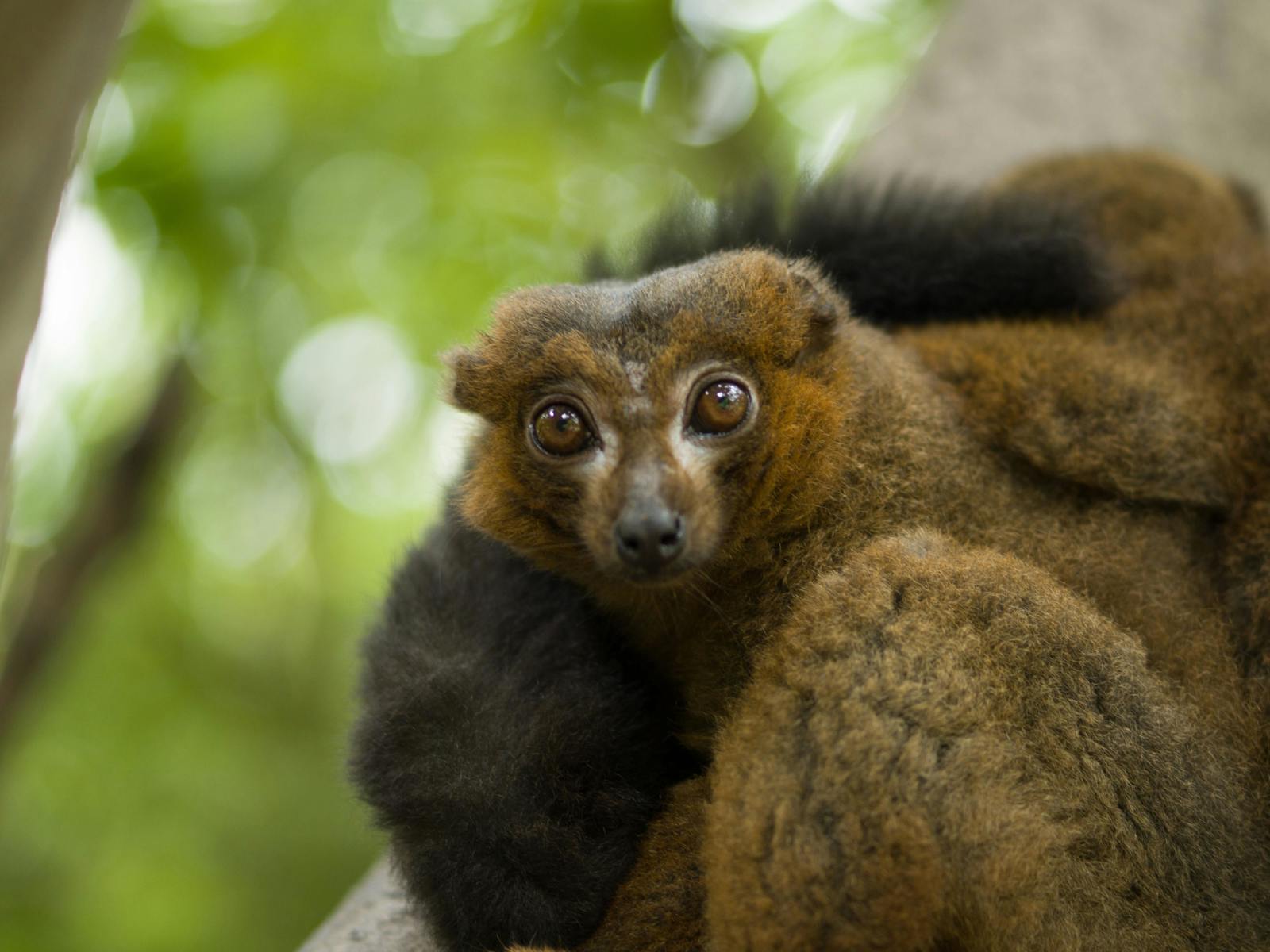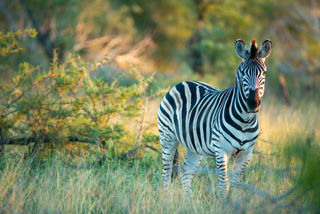

Red-bellied Lemur
One of the rarest members of its family

From Red-bellied lemurs’ name, you’d think they all have red bellies, right? Wrong! Only males of the species have red bellies, and females have white ones – so they’re very easy to tell apart.
Red-bellied lemurs have a very cute family dynamic. A male, a female, and all of their children live together and are very close. They eat, sleep, and travel together.
The Red-bellied lemur is the rarest species of its genus “Eulmur”, and there aren’t that many in zoos and wildlife parks. This means it’s all the more important to keep them safe.
Like Greater bamboo lemurs, Red-bellied lemurs are threatened by habitat loss because of human activity. We have worked on a project with the organisation, Helpsimus to help protect them and work with community education and initiatives to encourage local people to look after them.

Working with Red-bellied Lemurs
Helping lemurs with Helpsimus
We worked with the French charity Helpsimus, funding a project to protect Greater bamboo lemurs and Red-bellied lemurs in the Madagascan rainforest. This project had two aims: to study the lemurs in order to understand how to best support them and protect their habitat, and to educate the communities living nearby, so that local populations could contribute to their care and conservation.
Threats

Facts
- Red-bellied lemurs are what is known as a ‘cathemeral’ species, as they’re awake during the night and the day.
- They are very fluffy and have teeth on their bottom jaw that are shaped like a comb, to help them groom their long fur.
- Red-bellied lemurs can eat a kind of toxic millipede which they neutralise by spitting on them!
Seven Worlds, One Planet
Our work with Amur leopards has taken place in Russia, and at home at Yorkshire Wildlife Park.
Donate Today
We can’t do what we do without you. Donate to WildLife Foundation today!
Your donations – however big or small – make a HUGE difference to animals around the world that really need our help.
Text / SMS donations:
To donate £1, text LEMUR5 to 70201
To donate £3, text LEMUR5 to 70331
To donate £5, text LEMUR5 to 70970
To donate £10, text LEMUR5 to 70191
Keep up to date with WildLife Foundation
Sign up to keep up to date with us. Find out how you can help through fundraising, events, and more. You can unsubscribe at any time.


Stay up to date with WildLife Foundation
WildLife Foundation: charity number 1152642




